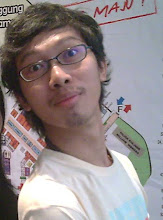
Interview with Anggun, singer Indonesian sponsor for the third year in a row of price environment Micro-National Geographic Channel.
Why did you engaged with the National Geographic Channel to its price micro-environment?
We hear a lot about the environment in general, as a major cause melting ice in the Arctic and global warming, but I believe that we do not talk enough gestures that people are at their level for the planet. These little things are actually very important because each link of an ecosystem has its function and importance. This award encourages people to continue their efforts to save nature in scale, locally.
Are there any projects that you have particularly strong?
I remember the first year, there was a lady who had built a nest for butterflies. It is a gesture of great beauty and it is important to not minimize. There are also several groups that are defending the diversity of fruit and vegetables by promoting the culture of ancient varieties like potimarron. Many of the projects are related to birds. I remember in  particular an association that built nesting boxes for owls, several species have indeed difficult today to make their nests because there are fewer and fewer trees adapted.
particular an association that built nesting boxes for owls, several species have indeed difficult today to make their nests because there are fewer and fewer trees adapted.
You are sensitive to the environment in your daily life?
My involvement for the price micro-environment, that's nothing, but I try to get the message across. I just have a child and I want that big when she could still see live animals in their natural habitat. All our small gestures account for this: we can sort our waste, to conserve energy, refuse plastic bags… This is the same struggle. I would like very much for coming generations, it is our duty towards our children.
You are Indonesian, then how you live wild deforestation of its tropical forests?
Deforestation is a crime in Indonesia since the 1980's. It is a developing country: it is the money that dictates the law because there is a lot of corruption. It touches me greatly. I feel the difference when I go to Jakarta, my home town. The monsoon season lasts longer and the destruction of the forests of Borneo and Sumatra that Jakarta is increasingly windy and dusty. In Asian countries, it is unfortunately difficult to talk about the environment: it is not yet part of the priorities of the people… it is perhaps not even at the 32nd place on their list of priorities! We must put pressure on the government to move things: we need to talk, even if they are not glamorous or sexy subjects.
Are you optimistic about the future of the planet?
We must not give up and we must continue to strive for that may one day save the bears, and other endangered species, if it is not too late. I just make the world a little girl, I need to be optimistic about the future.
Nadia Loddo
Metrofrance.com
Link source: http://www.metrofrance.fr//fr/article/2008/02/18/17/0738-37/index.xml
(Credits: Dian)
Addition:
ANGGUN, MARRAINE OF OPERATIONS, UNDERTAKES…
Anggun, you repeat your commitment to the 2nd edition of Prize Micro-environment National Geographic Channel, what is your Look at the protection of fauna and flora in a year?
I think that all means are justified to preserve nature, and I am also very pleased with the current popular movement in favour of ecology. However, I hope that it will have the necessary means to effectively protect the flora and fauna.
You have been seduced and affected by the actions taken by the winners of last year. What do you expect from projects will be presented at the new edition?
In an ideal situation, especially j'adorerais there are fewer requests for financial assistance for the micro-environment. This would mean that there has been a real awareness and that ignorance of the issues Ecological has significantly decreased.
What are the actions that will sensitize you the most?
I am quite sensitive to everything related to food, because it has a direct impact on our bodies. For example GMOs present r isks of contamination in terms of wildlife and the Flora, they threaten the entire food chain rebound and play havoc genetics of all living species. Everything is connected and should therefore appeal the precautionary principle to protect these jewels that are unique flora and fauna."
Source link: http://www.ecologie.gouv.fr/IMG/pdf/dp_Prix_Micro-Environnement_2007.pdf
(Credits: Dian)
Interview d'Anggun, chanteuse indonésienne, marraine pour la troisième année de suite du prix Micro-environnement National Geographic Channel
Pourquoi vous êtes-vous engagée aux côtés de National Geographic Channel pour son prix micro-environnement ?
On parle beaucoup de l’environnement en général, des grandes causes comme la fonte des glaces en Arctique ou le réchauffement climatique, mais je trouve qu’on ne parle pas assez des gestes que les gens font à leur niveau pour la planète. Ces petits gestes sont en réalité très importants car chaque maillon d’un ecosystème a sa fonction et son importance. Ce prix encourage les gens à poursuivre leur action pour sauver la nature à leur échelle, localement.
Y a-t-il des projets qui vous ont particulièrement marquée ?
Je me rappelle la première année, il y a eu une dame qui avait aménagé un nid pour les papillons. C’est un geste d’une extrême beauté et qu’il ne faut surtout pas minimiser. Il y a aussi plusieurs groupes qui défendent la diversité des fruits et légumes en promouvant la culture de variétés anciennes comme le potimarron. Beaucoup des projets concernent les oiseaux. Je me souviens notamment d’une association qui construit des nichoirs pour les chevêches, plusieurs espèces ont en en effet du mal aujourd’hui à faire leur nid car il y a de moins en moins d’arbres adaptés.
Vous êtes sensible à l’écologie dans votre vie quotidienne ?
Mon implication pour le prix micro-environnement, ce n’est rien, mais j’essaie de faire passer le message. Je viens d’avoir un enfant et j’ai envie que lorsqu’elle sera grande elle puisse encore voir des animaux vivre dans leur habitat naturel. Tous nos petits gestes comptent pour cela : on peut trier nos déchets, faire des économies d’énergie, refuser les sacs en plastique… C’est le même combat. J’y tiens beaucoup pour les générations à venir, c’est notre devoir vis-à-vis de nos enfants.
Vous êtes indonésienne, alors comment vivez vous la déforestation sauvage de ses forêts tropicales ?
La déforestation se fait de façon criminelle en Indonésie depuis les années 1980. C’est un pays en voie de développement : c’est l’argent qui dicte la loi car il y a beaucoup de corruption. Ça me touche beaucoup. Je sens la différence quand je vais à Jakarta, ma ville natale. La saison de la mousson dure plus longtemps et la destruction des forêts de Bornéo et de Sumatra fait que Jakarta soit de plus en plus venteuse et poussiéreuse. Dans les pays d’Asie, il est malheureusement difficile de parler d’environnement : ça ne fait pas encore partie des priorités des gens… ce n’est peut-être même pas à la 32e place de leur liste de priorités ! Il faut mettre la pression sur le gouvernement pour que les choses bougent : il faut qu’on en parle, même si ce ne sont pas des sujets glamour ou sexy.
Etes-vous optimiste pour l’avenir de la planète ?
Il ne faut pas baisser les bras et il faut continuer à lutter pour qu’on puisse un jour sauver les ours, ou d’autres espèces menacées, si ce n’est pas trop tard. Je viens de mettre au monde une petite fille, je me dois donc d’être optimiste pour l’avenir.







No comments:
Post a Comment